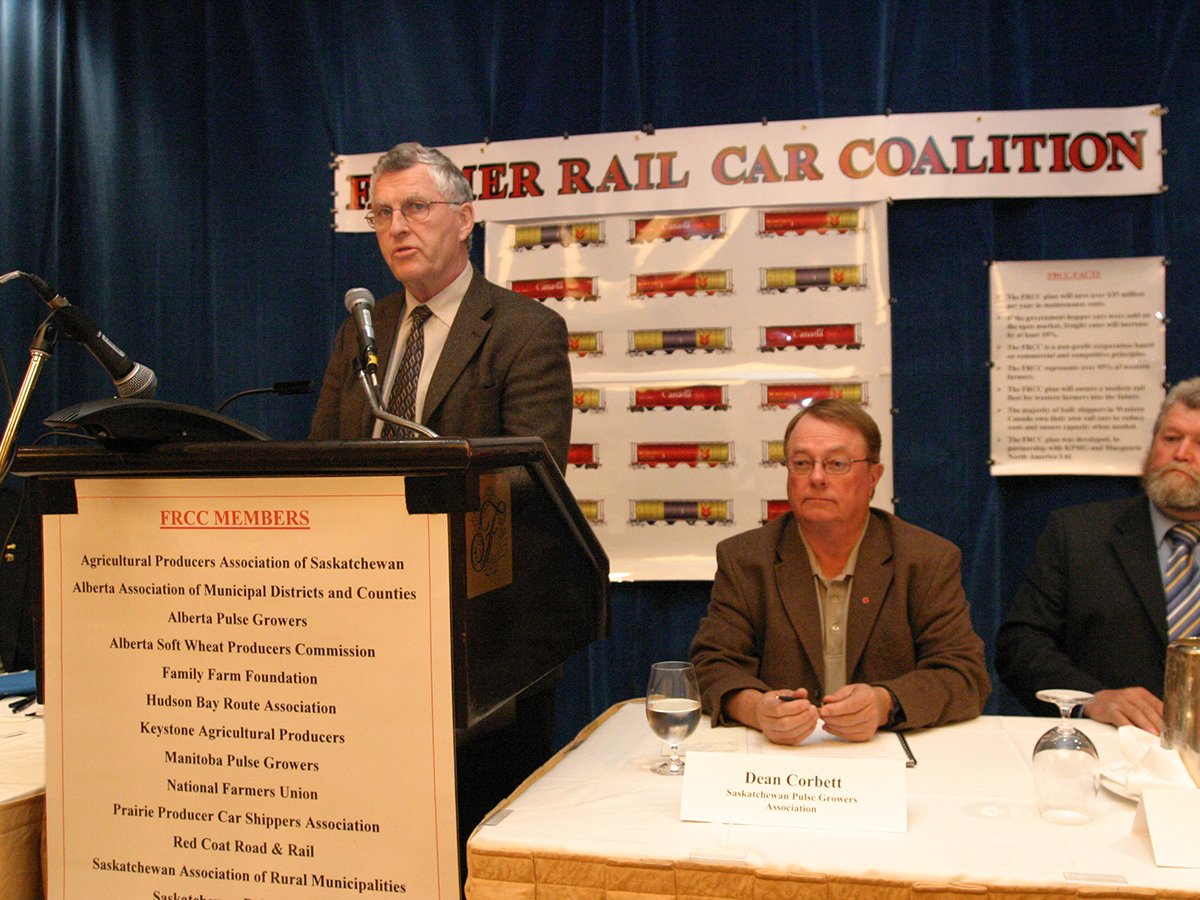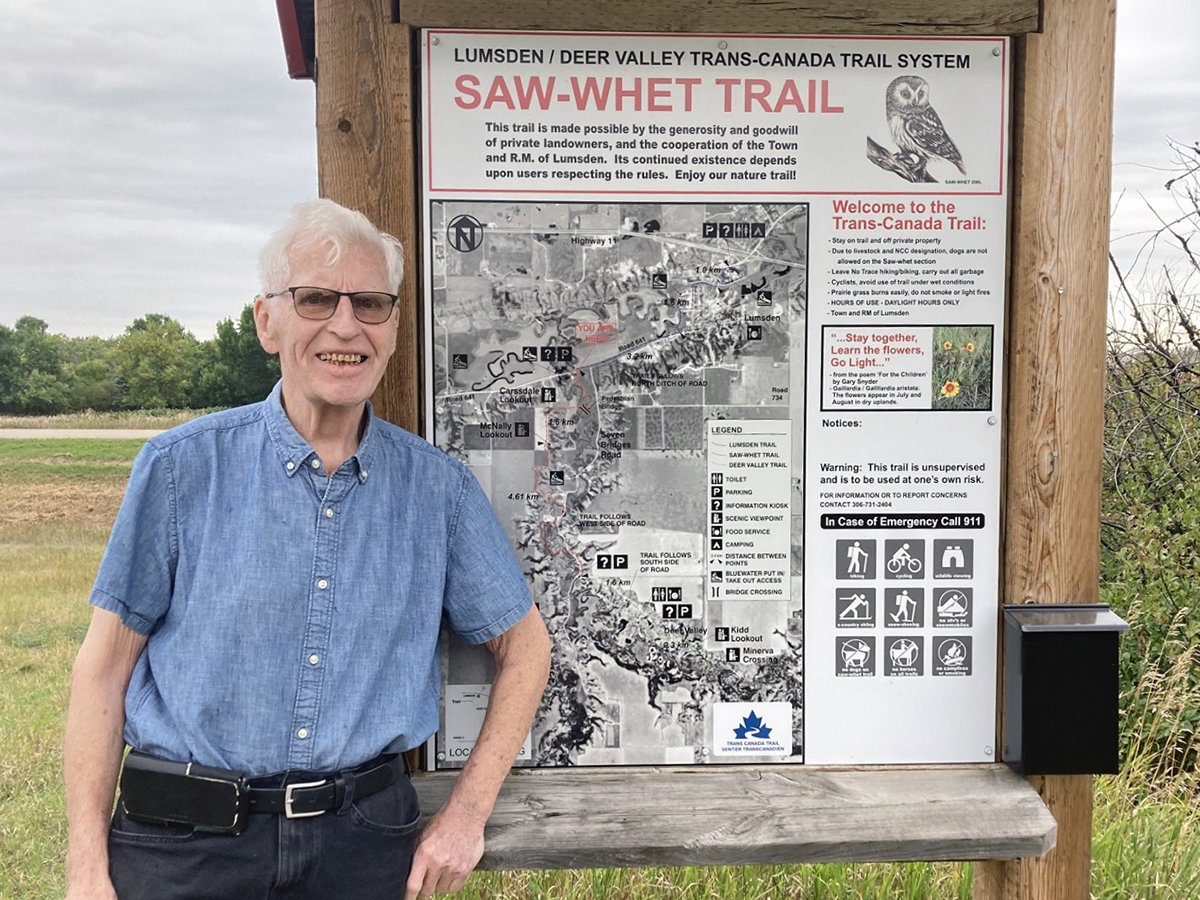REGINA — A rural Saskatchewan leader instantly recognized by just his first name is being remembered for his dedication to the province.
“When you said ‘Sinc’ everyone knew who you were talking about,” said Saskatchewan Association of Rural Municipalities president Bill Huber.
Sinclair Harrison, who was president of SARM from 1994 to 2002 and involved in numerous other organizations for decades, died Aug. 28. He was 81.
Read Also

Manitoba extends Crown land rent freeze
Manitoba government links the continued rental rate freeze on grazing and forage leases to economic and environmental challenges facing the industry
Tributes posted to social media claimed Harrison as “ours”, a nod to his work on behalf of rural residents, farmers and the province as a whole.
Premier Scott Moe said Harrison “made historic contributions to this province during (his RM involvement) and always remained a prominent voice for rural Saskatchewan.”
“Sinc Harrison truly put his province first and we thank him for many years of strong advocacy and leadership,” Moe posted on Facebook.
Huber said Harrison was known across the country as a dynamic leader committed to rural Canada. He drove the establishment of the rural forum at the Federation of Canadian Municipalities and was known in Ottawa circles.
“He was a guy who was very vocal in a quiet way,” Huber said. “He did it for the betterment of whatever he was working for.”
Harrison was born in Moosomin, Sask. in 1944 and obtained an agriculture degree from the University of Saskatchewan. He operated the family farm until 2002. He told the Western Producer in 2005 he had to choose whether to farm or represent people.
His involvement in rural politics began in 1974 when he was elected to the RM of Moosomin council.
He became reeve in 1976 and held the position until 2004. He was elected to the SARM board in 1986.
In 1984, he received a Nuffield Scholarship to study agriculture and local government in Australia and New Zealand.
Harrison is well known for his stance against the then-NDP provincial government’s push to restructure RMs. A task force report to the government had recommended the number of municipalities drop from more than 1,000 to less than 125 and RMs in particular were furious.
Harrison told the March 2000 SARM annual convention that RMs were prepared for change but wanted to be in charge of it.
He said he “would use every ounce of energy in my body to turn the amalgamation issue around.”
A couple of months later the government relented; expected legislation never came forward.
The former president helped develop the property tax loss compensation fund for treaty land entitlement and specific claims and led the fight to reduce education tax on agricultural property.
After his work with SARM, Harrison took on other challenges, including being on the board and then president of the Hudson Bay Route Association to increase use of the Port of Churchill, heading the Farmer Rail Car Coalition, which intended to buy the government fleet of grain hopper cars, and local causes in and around Moosomin.

He was also part of the effort to complete the Trans Canada Trail through the province. In 2016 the Governor General of Canada presented him with the Sovereign’s Medal for Volunteers for serving as chair of the Saskatchewan Vision 2017 Trail Committee and building relationships with municipalities and First Nations and Métis communities.
In December 2024, Harrison was lauded in the Saskatchewan Legislature by both government and opposition members for his decades of service to the province.
Deputy premier Jim Reiter, who worked with Harrison as a rural municipal administrator, presented him with the King Charles III Coronation Medal at that time.
Highways minister David Marit is also a past-president of SARM, from 2007 to 2014. He said Sinc was a mentor to him “and probably put me in the front row of this assembly, as he well knows.”
Marit described how Harrison and then-president of the Saskatchewan Urban Municipalities Association Mike Badham negotiated with former premier Roy Romanow to retain the current municipal structure.
He said the tax loss compensation fund is an agreement no other jurisdiction in Canada has.
“On behalf of rural Saskatchewan, Sinc, thank you for that,” Marit said.
Harrison was inducted into the Saskatchewan Agricultural Hall of Fame in 2009. That recognition noted the above achievements as well as his membership on the Action Committee on the Rural Economy, which was also an NDP government initiative.
“Throughout his long history of public involvement he displayed integrity, tenacity and the will to make the province a better place to live,” says his SAHF tribute.
Harrison and his wife Gail, who died in 2023, had five children and numerous grandchildren.
Huber noted that Gail also served on the HBRA and worked alongside her husband in many of his pursuits.
“Sinc always had his heart in things,” he added. “He always greeted you at a meeting. He had a way of making people feel comfortable.”
















